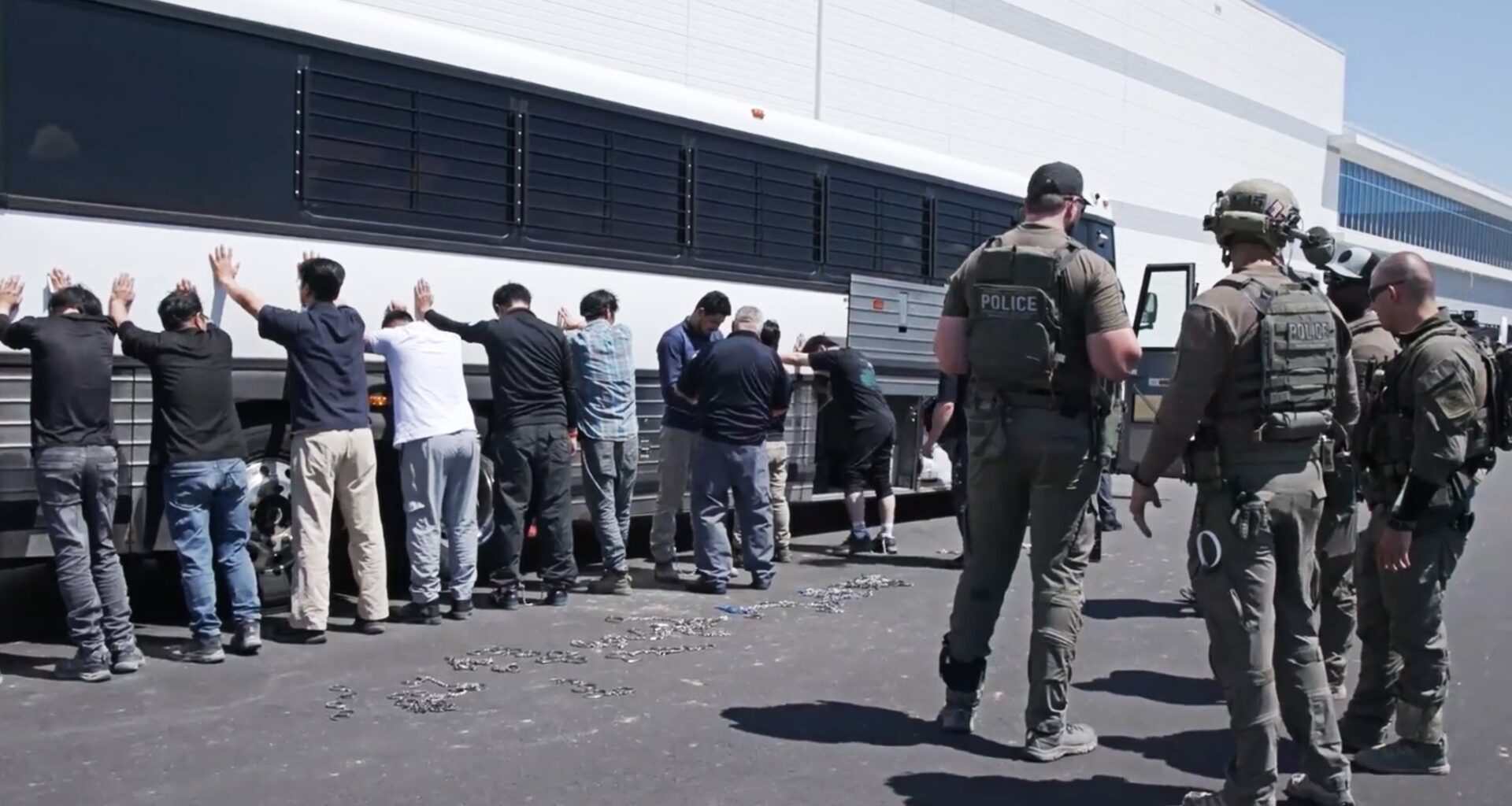On Sept. 4, U.S. Immigration and Customs Enforcement (ICE) arrested and detained 475 workers at Hyundai Motor Group’s electric vehicle battery plant near Savannah, Georgia. More than 300 of the people who were detained in the raids were South Korean nationals, many of whom had come to the United States on short-term visas to do highly specialized work at the battery manufacturing plant for the car company. Tori Branum, a conservative political candidate from Georgia who will be running for Congress for the second time, has proudly taken credit for reporting the plant to federal authorities, highlighting how immigration enforcement, and the handling of human lives, can become a political weapon used to score points in elections.
The treatment of the workers during detainment, with photos showing some people shackled and tied at the wrist, was received with strong outrage in South Korea. On Sept. 12, after a week of detention, hundreds of these South Korean workers boarded flights home on “voluntary departure,” rather than through formal deportation, on planes chartered by the South Korean government to repatriate them. Many of the workers who returned home were engineers and technicians who were recruited for the skills required for advanced battery manufacturing. Their sudden removal has left the Hyundai factory with a shortage of manpower and specialized skill.
The economic fallout is already tangible. The Georgia battery plant, which is a part of a $7.6 billion clean energy investment project, is now expected to be delayed by two to three months due to the sudden loss of highly trained labor, according to the company. In an industry tightly linked to global supply chains, these delays could cost millions for the company and limit supply across the world.
The diplomatic fallout has been just as detrimental. South Korean Labor Minister Kim Younghoon criticized the treatment of the detained workers by ICE, comparing it to how prisoners of war are handled. South Korean government officials summoned Deputy Secretary of State Christopher Landau to demand an explanation for the mistreatment of the workers and warned that any further incidents would not be tolerated. South Korean President Lee Jae Myung has warned that the actions surrounding the ICE raid could damage future ties with the United States. Some lawmakers in South Korea even hinted at the possibility of investigating American nationals who are working illegally without documents in Seoul, suggesting that retaliation is an option.
For a country that is one of the largest foreign investors within several industries in the United States, the raid has raised serious concerns. Can the United States be trusted to protect and fairly treat the foreign workers who make it possible to complete these projects?
While President Donald Trump defended the raid, saying ICE was right to arrest the workers, he also emphasized that foreign investment is welcome, but it must come with compliance—companies must “respect our Nation’s Immigration Laws.” He also stated that foreign nationals are “welcome” to come work in the United States, and that he did not want to “frighten off” any possible investors. The juxtaposition between his statement and the reality for the workers is striking. On one hand, there is a growing nationalist message that immigration enforcement must be strict and unyielding. And on the other hand, there’s an underlying acknowledgement that the United States cannot meet its economic goals without foreign expertise. The United States depends on foreign investment and to fuel industries, but its immigration enforcement policies undermine those exact goals.
At a time when South Korean cultural soft power is at its peak—whether that is through K-pop, K-dramas, or technology—the United States is sending a message that the people behind these global exports are welcome as long as they remain economic assets, not as human beings with rights and dignity.
For the Asian diasporic community in the United States, the raid is historic and terrifying in its own right. ICE’s actions thus far have overwhelmingly targeted Latino workers inside industries like agriculture, construction, and processing plants. The Hyundai factory raid marks one of the first large-scale actions against an East Asian workforce, yet the reaction among Asian Americans has been largely silent. That silence speaks to the perception that Asian immigrants, and particularly East Asians, are somehow exempt from the most violent aspects of U.S. immigration enforcement. The Hyundai raid suggests this perceived status quo has shifted and that no immigrant, regardless of country of origin, is safe.
For the Asian American community, the lack of mobilization surrounding immigration activism is telling. Social media feeds overflow daily with South Korean pop culture and fandom, yet there has been near silence surrounding what happened with the South Korean workers detained in Georgia. The absence of outrage emphasizes a long-standing myth that Asian immigrants are insulated from the harshest realities of being an immigrant in the United States. This moment could be a turning point, either by sparking broader Asian American solidarity with immigrant struggles, which have been long borne by Latino communities, or by reinforcing the fractures that keep these communities outside of solidarity with one another.
